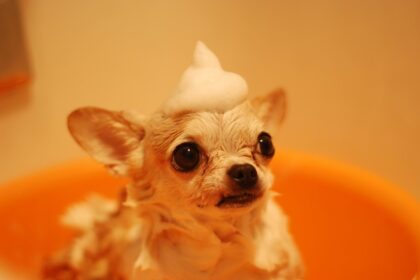
©2024 All Creatures Supplies. All Rights Reserved.

Taking care of our beloved pets involves more than just feeding and playing with them. Grooming is an essential part of pet care that helps maintain their health, appearance, and overall well-being. However, grooming needs can vary greatly depending on the type of pet you have. From dogs and cats to rabbits and birds, each animal requires a different approach to grooming. In this blog post, we will explore grooming tips for different types of pets to help you keep your furry (or feathered) friends looking and feeling their best.
Dogs: Regular grooming is important for dogs to prevent matting, reduce shedding, and keep their skin and coat healthy. Brush your dog’s fur regularly to remove loose hair and prevent tangles. Bathe your dog as needed using a gentle pet shampoo that won’t irritate their skin. Trim your dog’s nails regularly to prevent overgrowth and discomfort. Don’t forget to clean your dog’s ears and brush their teeth to maintain good oral hygiene.
Cats: Cats are known for being self-groomers, but they still need help maintaining their coat and claws. Brush your cat’s fur regularly to reduce shedding and prevent hairballs. Trim your cat’s nails every few weeks to prevent them from becoming too long or sharp. Clean your cat’s ears with a damp cloth to remove dirt and wax buildup. It’s also important to brush your cat’s teeth regularly to prevent dental issues.
Rabbits: Rabbits have unique grooming needs due to their delicate skin and fur. Brush your rabbit’s fur gently with a soft-bristled brush to remove loose hair and prevent matting. Check your rabbit’s nails regularly and trim them as needed to prevent overgrowth or injury. Keep your rabbit’s living area clean by spot-cleaning soiled areas daily and doing a full cage cleaning weekly.
Birds: Birds require regular grooming to keep their feathers in good condition and prevent health problems like obesity or fatty liver disease. Provide your bird with opportunities for bathing by misting them with water or offering a shallow dish for bathing. Trim your bird’s nails if they become too long or sharp, but be cautious not to cut the quick (blood vessel). Consider consulting a professional groomer or avian veterinarian for help with wing clipping.
Small Mammals: Guinea pigs, hamsters, and other small mammals also benefit from regular grooming practices such as brushing their fur, trimming their nails, cleaning their ears, and checking for signs of illness or injury.
Grooming is an important aspect of pet care that should not be overlooked regardless of the type of pet you have. By following these grooming tips tailored to different types of pets, you can ensure that your furry (or feathered) friends stay healthy, happy, and looking their best. Remember that each pet is unique in its grooming needs, so it’s essential to consult with a veterinarian or professional groomer if you have any specific concerns about caring for your pet’s coat, skin, nails, ears, or teeth.
©2024 All Creatures Supplies. All Rights Reserved.
